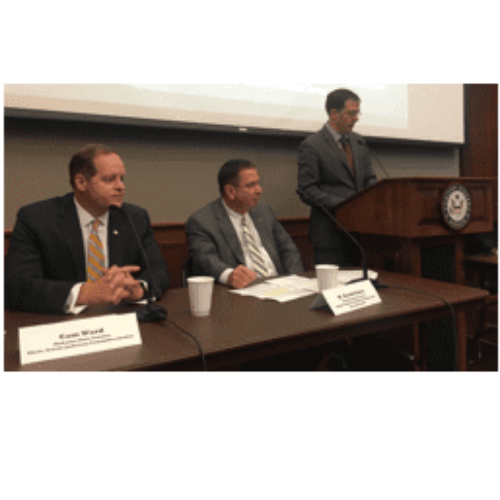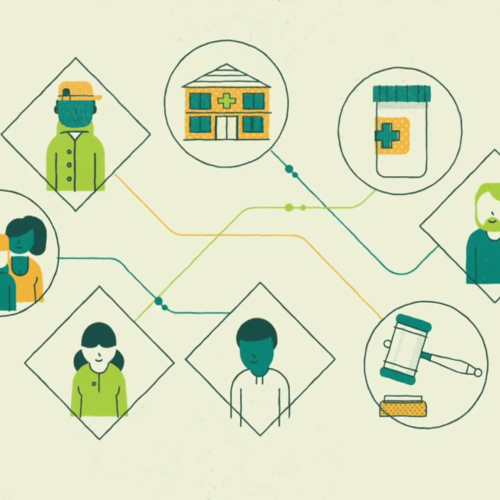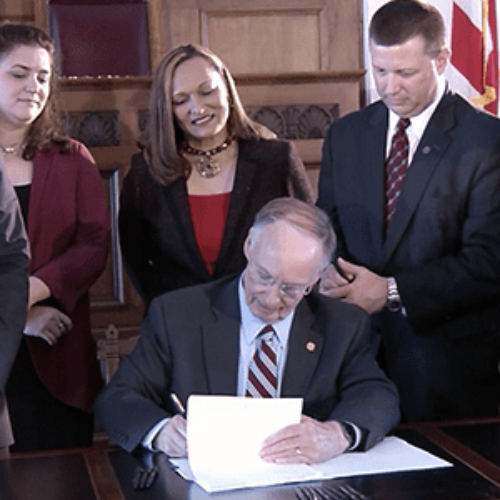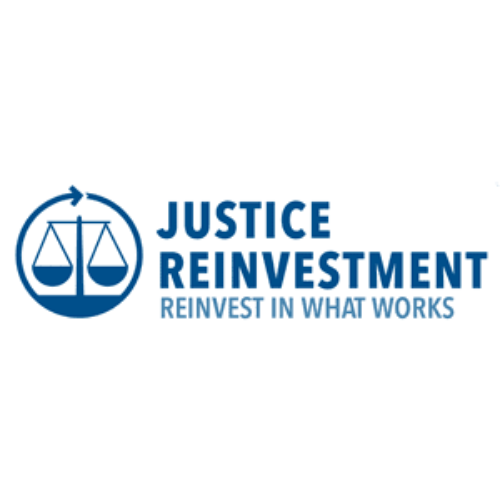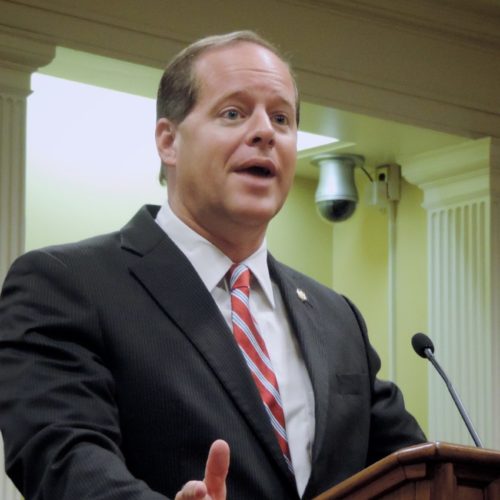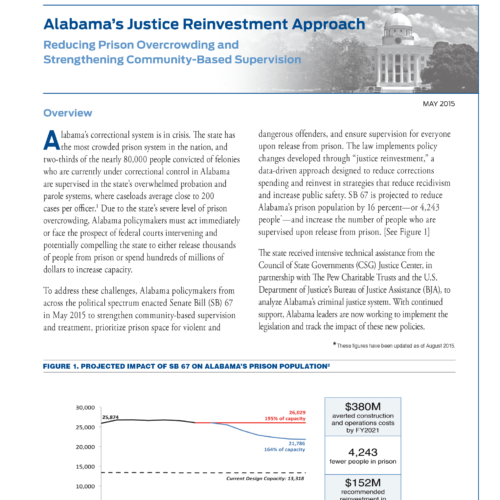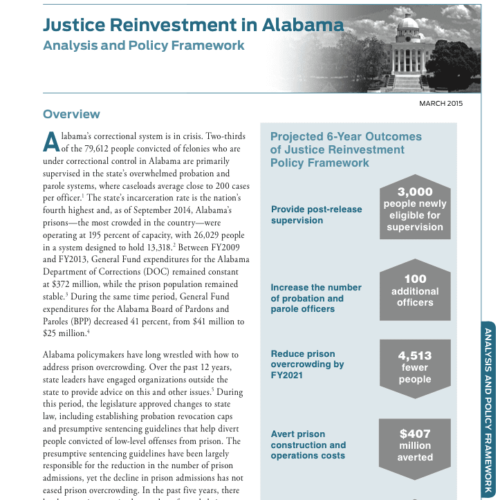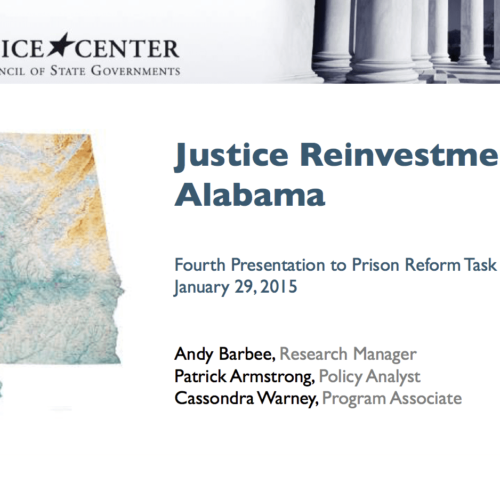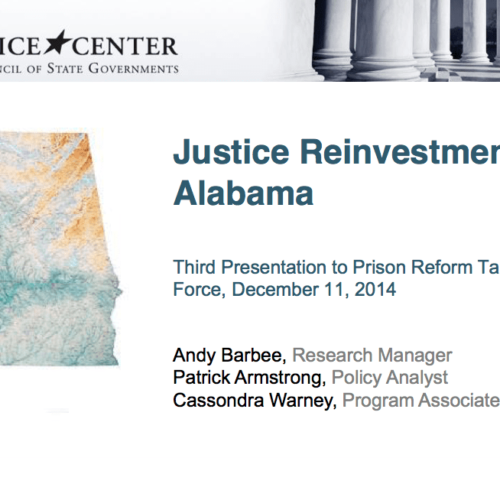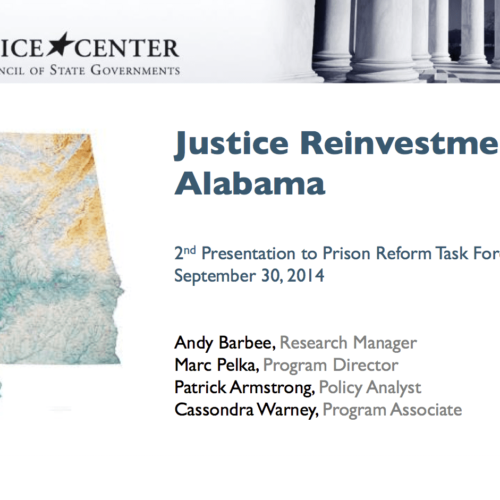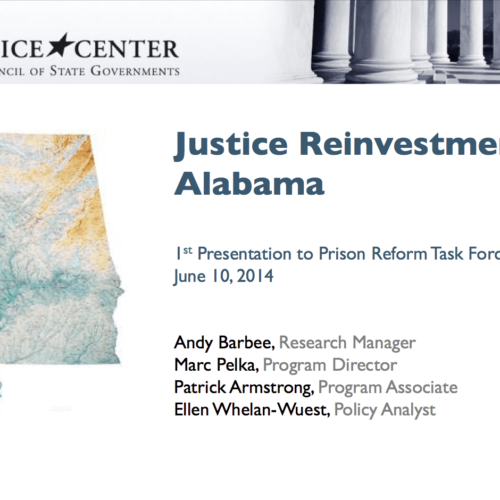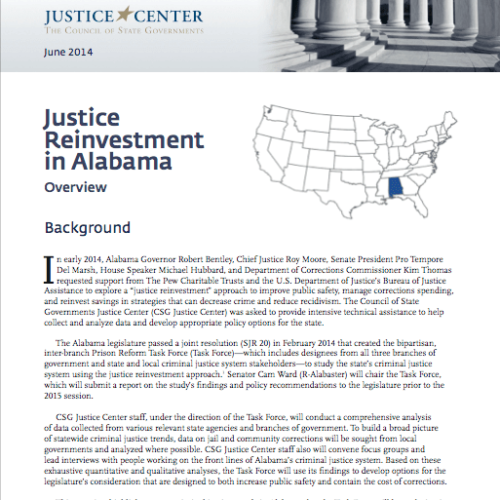Justice Reinvestment in Alabama
The Problem
In 2015, Alabama had the most crowded prison system in the nation, operating at 195 percent of capacity. In addition, two-thirds of the nearly 80,000 people convicted of felonies and under correctional control were supervised in Alabama’s overwhelmed probation and parole systems, where caseloads averaged close to 200 cases per officer.
How JRI Helped
From 2014 to 2015, CSG Justice Center staff analyzed Alabama’s criminal justice data, interviewed stakeholders from across the criminal justice system, and worked with policymakers to develop data-driven policy options designed to reduce prison overcrowding and increase public safety. In May 2015, Alabama leaders enacted Justice Reinvestment legislation (Senate Bill 67) as a first step toward improving their justice system. Among other things, the law
- Strengthens community-based supervision and treatment;
- Prioritizes prison space for people convicted of violent offenses and those who are most likely to reoffend;
- Provides supervision to every person released from prison; and
- Improves notification to victims regarding releases from prison.
At a time when the overall state budget was being cut amid a fiscal crisis, the legislature demonstrated its support for the Justice Reinvestment Initiative by appropriating $95.6 million to fund Alabama’s Justice Reinvestment Initiative legislation between 2016 and 2019.
Implementation and Impacts
The funds supported improvements to community supervision, including hiring and training more than 100 new probation and parole officers, which decreased caseloads from 200 cases per officer in 2014 to just over 110 cases at the end of 2017. People convicted of the lowest-level property and drug crimes are receiving intensive supervision and treatment in the community to reduce recidivism, thereby prioritizing prison beds for people convicted of the most violent offenses. Access to substance use disorder and mental health treatment was expanded through the opening of three day-reporting centers and contracts awarded to community-based providers starting in March 2017.
Between 2015 and 2021, Alabama’s prison population fell 27 percent.
CSG Justice Center staff provided technical assistance to Alabama on the implementation of its Justice Reinvestment policies by
- Helping state leaders establish a strong oversight structure and conduct stakeholder engagement to ensure ongoing support for and sustainability of implementation;
- Strengthening probation, parole, and CCP supervision through effective implementation of new supervision policies and staff training in evidence-based practices;
- Implementing parole decision-making guidelines to prioritize prison space for people convicted of the most violent offenses and those who are most likely to reoffend; and
- Developing a strategy to maximize reinvestment funds for behavioral health treatment to expand access for people on probation and parole.













